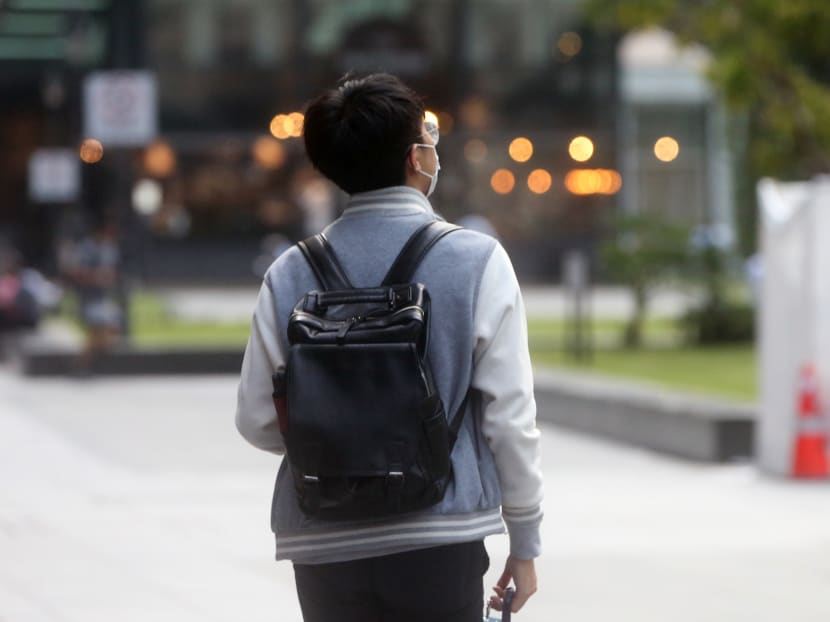Millennial jobseekers say they’re upfront, ‘hungry’ and know their worth as employers learn to adapt
SINGAPORE — The longstanding debate about whether millennials in the job market and workplace have too much of a sense of entitlement has come to the fore again after a social media post went viral recently. TODAY’s interviews with both employers and young jobseekers found, however, that there may be more middle ground between these two groups than one might expect.

One employer said that while hirers should learn to adapt and try to understand millennial workers' expectations, young jobseekers should also make appropriate demands and not go into all interviews with a “big multinational company mindset”.
- A social enterprise co-founder had taken to Facebook to share his experience with seven young jobseekers, causing outrage
- Among other things, he said millennial jobseekers lack “hunger” for jobs and are not willing to “suffer”
- Millennial jobseekers said in response that times are different now compared to older generations
- Other employers said hirers need to adapt or risk losing out
SINGAPORE — The longstanding debate about whether millennials in the job market and workplace have too much of a sense of entitlement has come to the fore again after a social media post went viral recently.
TODAY’s interviews with both employers and young jobseekers found, however, that there may be more middle ground between these two groups than one might expect.
Commenting on the issue, Miss Sharifah Zahrah Aljufri, 25, who has been looking for a job since May, said people who make sweeping statements that millennials should be more humble and more willing to “suffer” like the older generations are stereotyping the group. She also felt that the generalisation of millennials being too demanding is unfair.
Mr Adam Esoof Piperdy, 30, chief executive officer and founder or events company Unearthed Productions, agreed that times have changed and hirers need to accept and learn to adapt to the ways of millennials or risk losing out.
The debate on the matter was sparked by a Facebook post made by Mr Delane Lim, 35, on Aug 29.
Mr Lim, co-founder of FutuReady Asia, a social enterprise focused on youth and leadership development, asked: “Are we raising our generation to be adult babies? Well, I interviewed 12 local graduate jobseekers this week for a job... I’m disappointed with their responses because none of them was hungry for a job.
Hours later, a second post elaborating on the matter attracted the attention of many online users.
He detailed his experiences with seven anonymous Singaporean “young candidates” he had interviewed and gave examples of how the applicants had made a range of requests — including not wishing to work on weekends, asking for transport allowances, a team of junior co-workers to assist in tasks and increased annual leave and salaries.
Mr Lim also said that during the interviews, he felt that he was the one being interviewed instead, adding that many of these “young talents” are not willing to be humble or suffer.
“They prefer to work smart (rather) than hard, unlike our older generation. I am pro-Singapore workforce but... they make it harder for us to consider employing them. So stop blaming companies for considering non-locals,” he wrote.
The Pew Research Center of the United States, which has been studying millennials for more than a decade, defines millennials as individuals born between 1981 and 1996. This year, they would be aged between 24 and 39.
When TODAY spoke to Mr Lim on Wednesday, he explained that he was merely sharing his experience and highlighting a gap in expectations between jobseekers and prospective employers.
“In no way was my post meant to cast aspersion or to stigmatise any specific groups. I had expected that this post would start certain conversations and debates and a sharing of other people's experiences, as well as take in differing views, but I didn’t expect the hostility of the responses.”
Mr Lim said that he has been “harassed” and subjected to doxxing with his address and contact details posted online.
He has also received threatening notes from “keyboard warriors” and social media users who disagreed with his stance have been making fun of pictures of him, his family and friends, he added.
There was, however, a “silent majority” that sent him positive messages, chocolate hampers and even a S$200 CapitaLand voucher, and he is thankful for their support during what has been a “challenging time”.
Asked if he regrets publishing the post, he said: “This is my DNA and this is my social media personality. I stand by what I said but I could have made my intention clearer through better use of words.”
UNFAIR TO COMPARE
Ms Muslihah Mujtaba, 26, a former production coordinator who has been on a job hunt since February, said that the younger generation tends to be more demanding than older generations but it is simply because they refuse to “settle for less”.
“It’s not that millennials are not willing to suffer, it’s just that we are more driven in striving for greater income and better opportunities because the standard of living is much higher now and we have invested so much in our education,” she said.
Miss Sharifah, the other jobseeker whose internship stint was shortened due to Covid-19, said that what Mr Lim saw as demands are not unreasonable requests.
“I think it’s perfectly valid for jobseekers to ‘interview’ the employers as well. I see why some job applicants have specific expectations, especially if they had been used to certain (benefits and ways of working) from their previous workplaces, though I also understand that what they want may not always be feasible,” she said.
“As for the claim that millennials aren't ‘hungry’ enough. I think it’s precisely because we are hungry that we ask questions and have expectations.”
Ms Yeo Wan Ling, 25, who has been looking for a job since she was retrenched in April, agreed that at the interview stage, job applicants letting the employer know what they need to work well is a healthy form of transparent communication.
Freelance writer Neon Drew, 24, said that Mr Lim’s “entire perspective is centred around this toxic mentality that you're only hungry for a job if you're willing to sell your soul in the name of work”.
“Having conditions set is not just for our own benefit of work-life balance, but prudence for career longevity to avoid burnout," Mr Drew said.
"Unlike the salarymen era, millennials have the luxury of defining our own passions and decide the trajectory to get there. We are hungry to prove our worth without compromising our own values and principles.”
He added that the present career landscape and economy are vastly different from the yesteryears, and it would be comparing apples and oranges when it comes to saying what “suffering” is.
“More importantly, hiring managers need to recognise the recruiting process as an even-levelled plane, as opposed to being on a pedestal where candidates should feel lucky to have the job," he said.
"It works two-ways — as much as a company assessing a candidate is a good fit, we're also extending the same courtesy by applying and offering our skills and services.”
‘IT TAKES TWO HANDS TO CLAP’
Mr Dale Tan, 41, owner of an ergonomic office furniture brand, believes that it “takes two hands to clap”.
While hirers should learn to adapt and try to understand the mindsets of this group, young jobseekers should also “do some research” and make appropriate demands and requests. They should not go into all interviews with a “big multinational company mindset”.
“They need to understand that some small- and medium-sized enterprises (SMEs) are lean or they are startups trying to find their own footing, so not everyone will be able to fulfil their demands, though we will try our best to understand them,” he said.
When it comes to millennials having certain demands or expectations, Mr Piperdy of Unearthed Productions said that “it is totally fine” and it is only because they know what they want. He said that 13 of his 15 employees are millennials.
“They are choosing a career and they definitely don't want to go into a company where it’s all just going to be, ‘Listen to what I say, this is how you do it, don't drink Starbucks’," he said.
"It’s all about trying to make the best environment for everyone and see how they can contribute new ideas… because these people will be the driving force in about five to 10 years.”
As millennials are the new generation of workers, hirers should adapt or risk losing out, he noted.
“With no fresh ideas, you won't be able to connect and this has been happening to some of the SMEs right now.”
Mr Sam Too, general manager of online retailer Qoo10, where the average age of staff members is 31, said that employers should remove any biases and not prejudge any candidates.
He acknowledged that some millennials have a “stronger sense of self-entitlement and self-belief, having already formed their own perceptions of their market value from the use of various online sites and tools”.
“Mutual respect is key. We also try to be as transparent as possible. There isn’t much to hide in this modern age of the internet," he added.
"Managing expectations at the onset and levelling both parties’ expectations as much as possible is important.”











